More than diamonds:
A caring global citizen
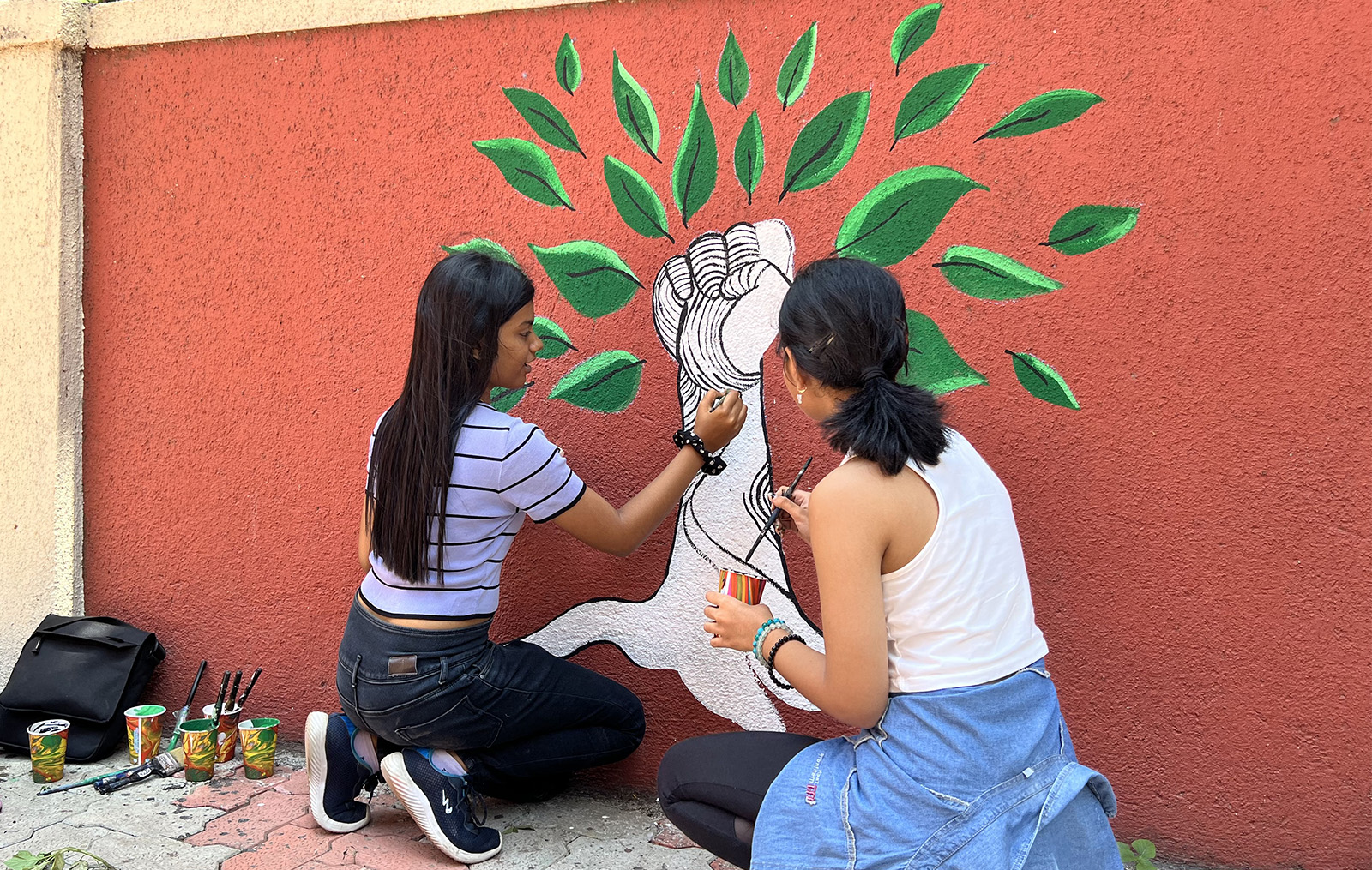
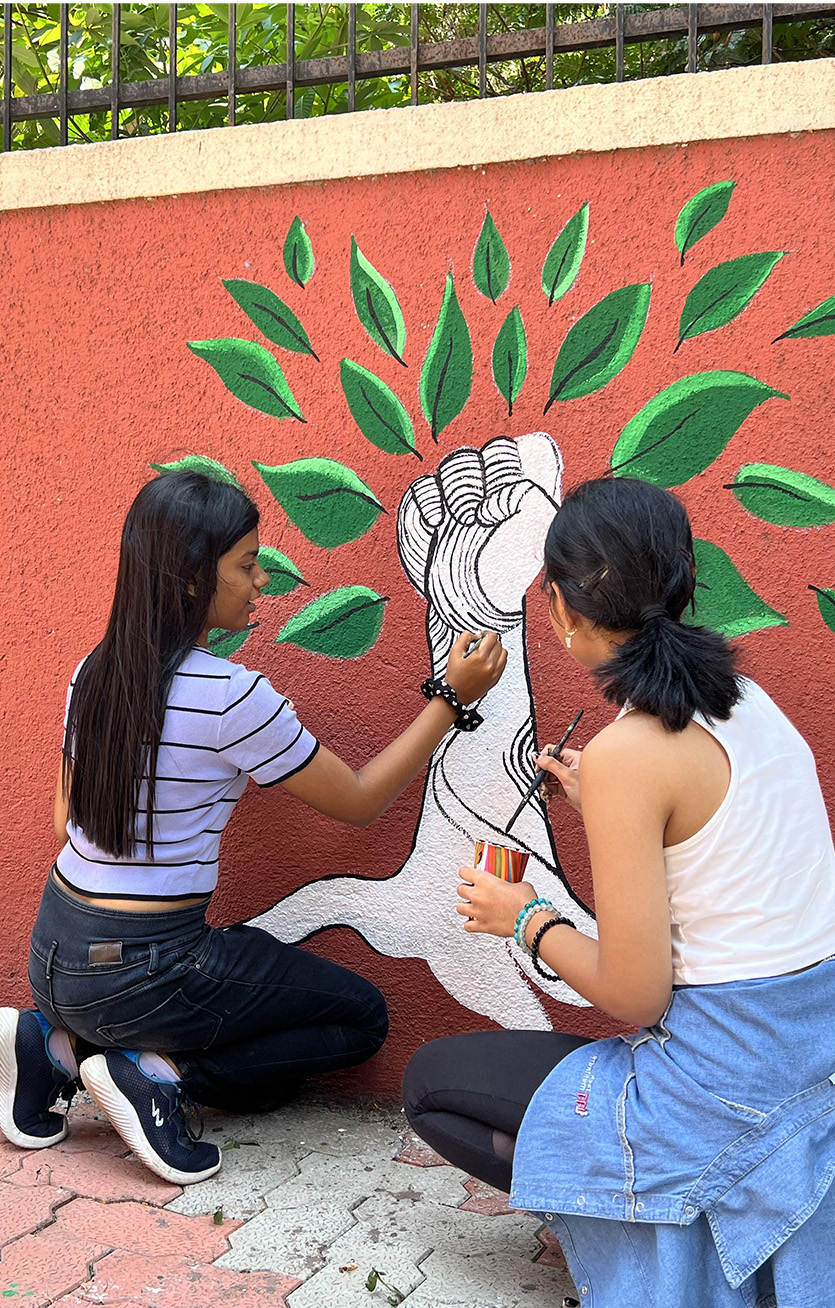
ArtShala, which is supported by the Rosy Blue Foundation, is a program which brings together talented volunteer artists to create colorful murals that beautify often dull spaces at government schools across India.
There are few corporations in the diamond industry with the scale and geographic reach of Rosy Blue. Present in 10 countries and directly employing some 3,400 people, in 2022 it purchased and processed about 3.33 million carats of rough diamonds, and cut and polished 722,410 individual stones with a total weight of 184,005 carats. Its turnover that year was $1.85 billion, 41 percent of it in India.
While it is the most international of operations, Rosy Blue remains at its core an Indian company. It was founded in Mumbai in 1960 as B Arunkumar & Co., by Arunkumar Mehta and his uncle Bhanuchandra Bhansali. It remains a family-owned and run operation, now managed by the third generation of the Mehta and Bhansali families.
The origin of its current name is part of company lore. In 1960, with no email, fax of even telex available, the new firm required a cable address. The name “Rosy Blue” was selected, partly because it was short, concise and easy to remember, but also because its referenced two of the most prized fancy-colored diamonds in the trade.
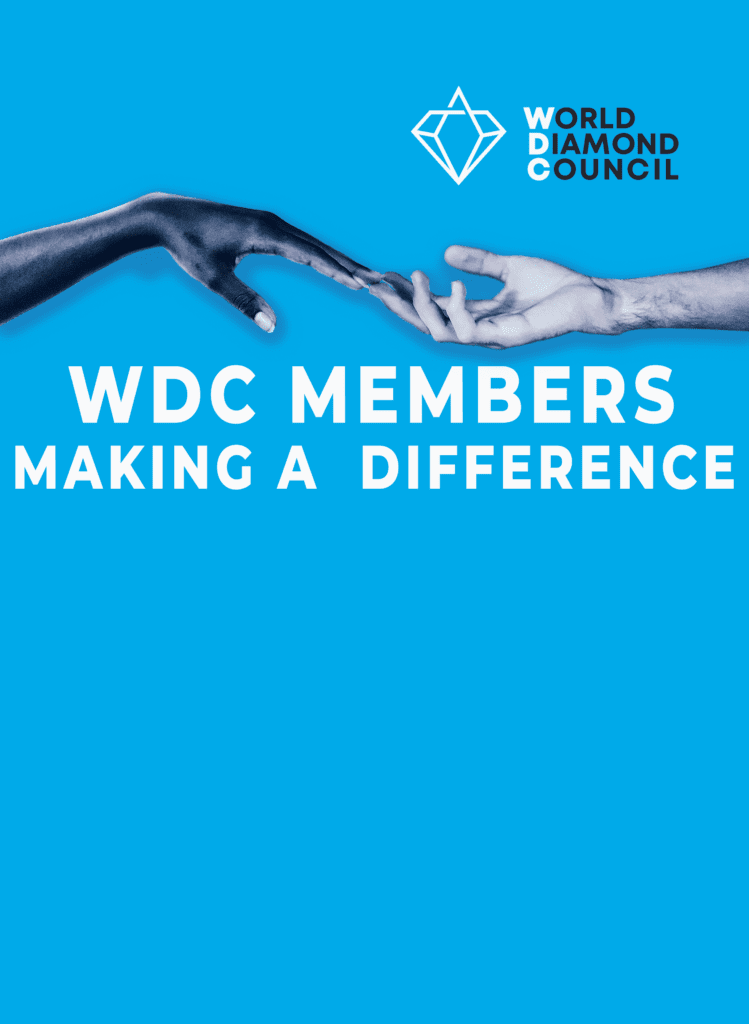
Several years later, when the corporation’s former CEO, Dilip Mehta, founded the Antwerp branch, he decided to register the Belgian company as Rosy Blue NV. The name stuck and the rest is history.
Ahead of the game in ethical conduct
Rosy Blue was ahead of the game in committing to a strictly ethical diamond business framework, introducing measures to eliminate reputational risk in its supply chain and guaranteeing to clients that its supply is 100 percent natural. Monitoring the rough diamonds that it buys to ensure that ensure that it is conflict-free and devoid of human rights abuse, it has done so through human vigilance, integrated with an IT system that helps help it track every stone passing through the manufacturing and finishing process.
The corporation was one of the 14 founding members of the Council for Responsible Jewellery Practices (CRJP), the precursor to the Responsible Jewellery Council (RJC), when it was established in 2005. It received full RJC certification for all non-Indian subsidiaries in 2011, and for all entities in 2013.
One of De Beers largest sightholders, Rosy Blue has been compliant with its Best Practice Principles (BPP) assurance program since 2006, one year after the compliance system was launched by the diamond mining company.
Rosy Blue became a member of the UN Global Compact in 2008, committing to its 10 responsible business principles, as well as to the Millennium Development Goals, and later to the Sustainable Development Goals, which were introduced in 2015.
The firm was the first company from the diamond industry’s midstream to join the Watch & Jewellery Initiative 2030 in 2022. The program is an initiative by Kering and Cartier, to accelerate positive impact in three areas – building climate resilience, preserving resources, and fostering inclusiveness.
The Global Compact principles formed the basis of Rosy Blue’s own Supplier Code of Conduct, to ensure the responsible management of its supply chain from an ethical, social and environmental perspective, with particular stringent requirements how its suppliers treat their own workers.
Rosy Blue was one of the first companies in the diamond and jewelry industry to begin issuing an annual report to society, and it has done so every year since 2009.
The Rosy Blue Foundation
In 2010 the corporation established the Rosy Blue Foundation, as a vehicle for improving and enhancing the community service commitment of its group of companies.
“It is our belief that economic growth must be accompanied by an awareness of social and environmental responsibility,” Rosy Blue explains. “The foundation is a direct manifestation of this goal, and through it we seek to expand the reach and extent of our philanthropic activities.”
“We perceive this foundation to be an instrument; a means for transforming private funds into public benefit,” it adds.
In determining what projects to support, a decision was made to concentrate on initiatives that look to cure social problems, rather than charities. It has a clear preference for the innovative.
“Initially, we hope to support new ideas and give them a chance for trial to encourage new ways of thought, as opposed to funding approaches that have already been tried and tested,” wrote Valerie Michel, the Sustainability Manager at Rosy Blue NV in Antwerp.
“At Rosy Blue it’s about ‘more than diamonds’ and the foundation is a way for us to demonstrate this belief. We are extremely grateful to be in a position to be able to make a difference, and have every intention of making the most of it. After all, with great privilege comes great responsibility.”she continued.
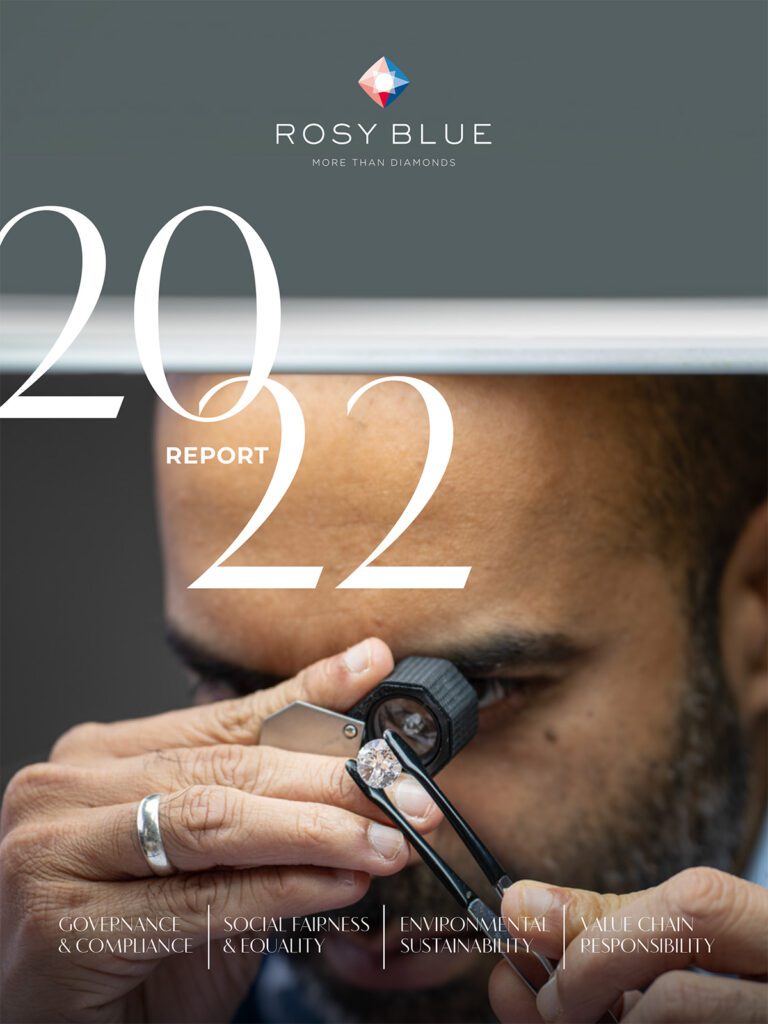
Among the first diamond companies to begin issuing an annual report to society, Rosy Blue has done so every year since 2009.
Matching volunteers and community-serving NGOs
A project that the Rosy Blue Foundation has both supported and helped develop is ConnectFor, which is a platform that enables people to become involved and engaged with the causes they care about. Going live on December 05, 2015, it can be accessed on the Internet at www.connectfor.org.
The platform was the brainchild of two young Indian entrepreneurs, Shloka Ambani, the daughter of Russell Mehta, Managing Director of Rosy Blue (India), and Maniti Shah. While designing a mentorship-based employee engagement project for the foundation, they met with numerous representatives of NGOs, and became aware of the difficulties faced by organizations running community programs that do not fulfill the requirements of corporate funding.
“We realized that if we could create a consolidated platform where skills could be matched with needs it would be a win-win for all,” they explained in an interview published by the Natural Diamond Council in April 2022.
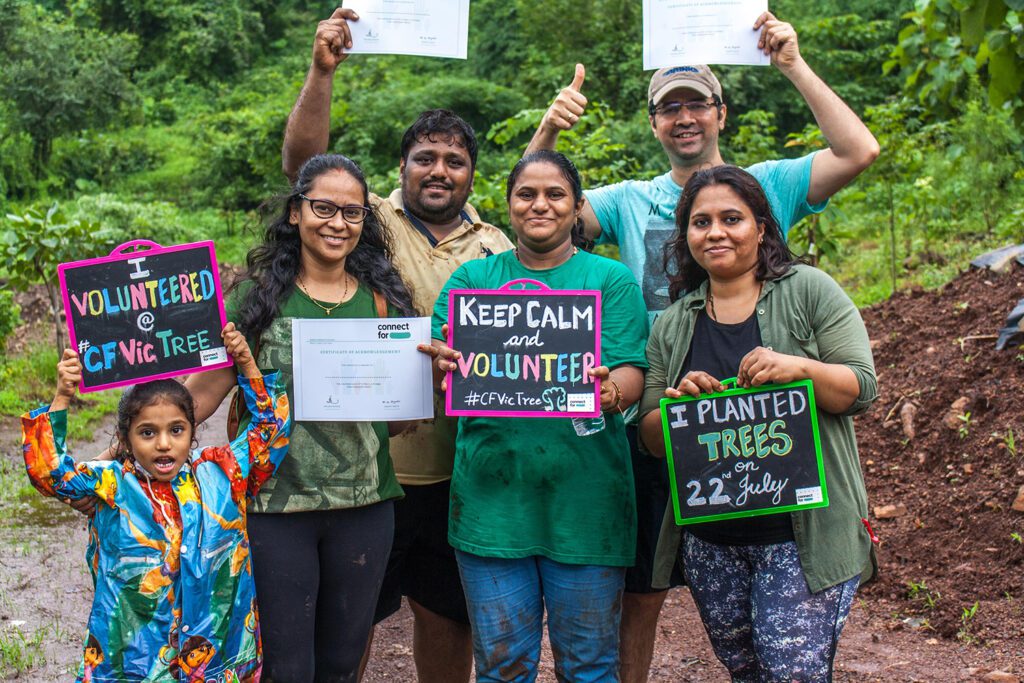
Volunteers in a tree-planting program, coordinated the ConnectFor iniative,
“India’s attitude towards volunteering has been decidedly paradoxical,” they explained. “While some schools and colleges have mandatory service requirements, and corporates are actively organizing one-off volunteering engagements for their employees, the culture of volunteerism has never fully developed. We believe it is essential to inculcate the spirit of volunteerism in the youth, to make them realize the value of human capital, going beyond the idea of simply just donating money. Offering people the right experience at the start of their social careers can lead to them becoming active philanthropists at a young age.”
The digital platform that was build essentially connects volunteers with selected NGOs, matching their skills with the need of the organization in question. It provides the same service to some the country’s leading corporation, which encourage employees to engage in voluntary philanthropic activity. The causes served include women’s empowerment; education and literacy, the welfare of children, physically and cognitively challenged individuals, senior citizens, animal welfare, the environment and sustainability, community development, disaster relief, and LGBTQ+ and youth development.
The Rosy Blue Foundation provided funding to build the platform, and, when ConnectFor conducted its initial pilots, many of the volunteers were from the diamond industry, most being employees of Rosy Blue India. The diamond company also shared sharing ancillary resources like accounting and legal support.
By the end of 2022, after seven years of operation ConnectFor has mobilized more than 56,000 volunteers, as well as 85 corporate partners, matching them with some 740 NGOs.
A focus on education
Education has always been a primary focus of the Rosy Blue Foundation. In 2015 it established a relationship with Mentor Together, India’s largest youth mentorship organization, helping establish its Mumbai Chapter. In its first year of operation recruited and provided mentors to 200 students from socially and economically challenged backgrounds.
A similar project was launched with an NGO called Mentor Me India, where the children targeted live on the street, do not have parents or are the offspring of sex workers. The goal is to provide them with positive role models, encouraging them to break the inter-generational cycles of poverty and desperation.
The foundation also worked with the PNP Education Society to contribute towards the construction of its English-language medium school, Holy Child, in the Raigadh district in Gujarat. It serves about 680 students, and is part of a larger campus that includes a middle school and a college.
Partnering with the Vidyamandir Trust in Palanpur, the Rosy Blue Foundation has created a teacher training program for seven schools in the town of Sanali and Dalpura in Gujarat. whereby teachers are trained in specific modules designed to improve their efficacy as educators.
A program the foundation is particularly proud of is ArtShala, which brings together talented volunteer artists to create large and colorful murals, which beautify and revamp the often dull spaces at government schools across India.
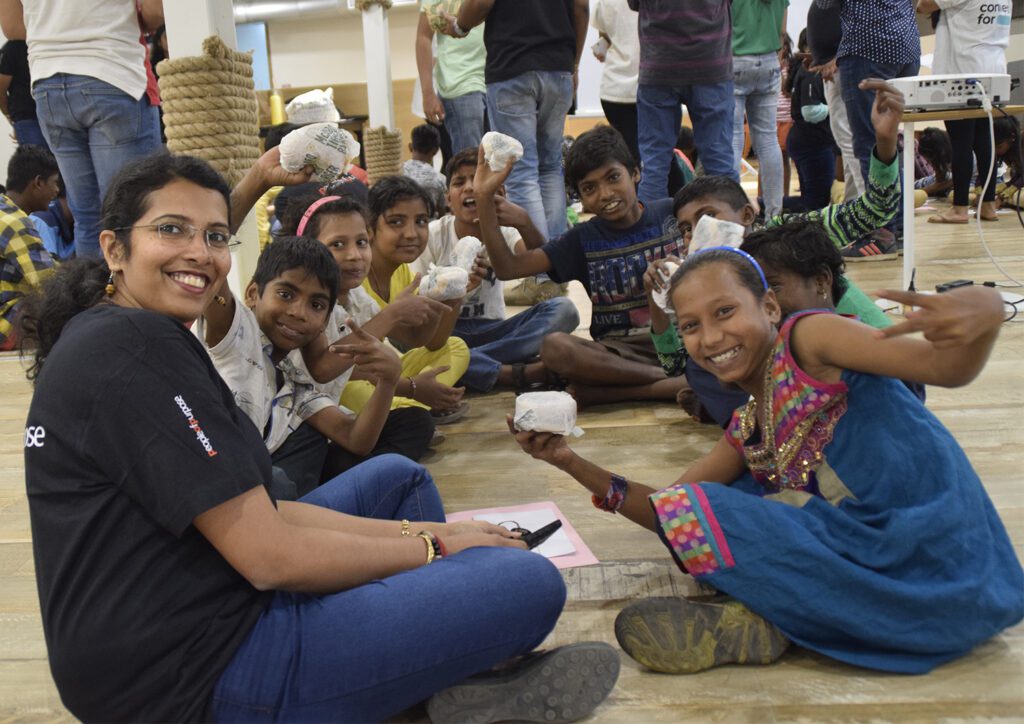
A volunteer youth mentoring program supported by the Rosy Blue Blue Foundation.
The foundation is also looking to the future, seeking to provide talented Indian youth with the education required to nurture tomorrow’s leadership. Taking inspiration from the Rhodes Scholarship program, it is establishing a new scholarship fund for meritorious students, into which will invest between $15 million and $20 million over the coming years.
On June 1, 2023, Rosy Blue was the recipient the Visionary Award, at the Diamond Do Good annual gala at the JCK Show in Las Vegas. Expanding on its decision to recognize the company, Diamond Do Good, which is an NGO whose mission it is to support programs that develop and empower people in natural diamond communities, said that Rosy Blue was being honored for its pioneering leadership as early adopter to incorporate social, environmental, economic, and ethical factors into it corporate strategic decision-making process.
“By being the first Indian manufacturer to sign on to the Global Reporting Initiative, leading the way by joining the UN Global Compact, and creating social good in communities where they do business through their foundation, Rosy Blue demonstrates how being a successful business includes being a caring global citizen,” Diamond Do Good stated.
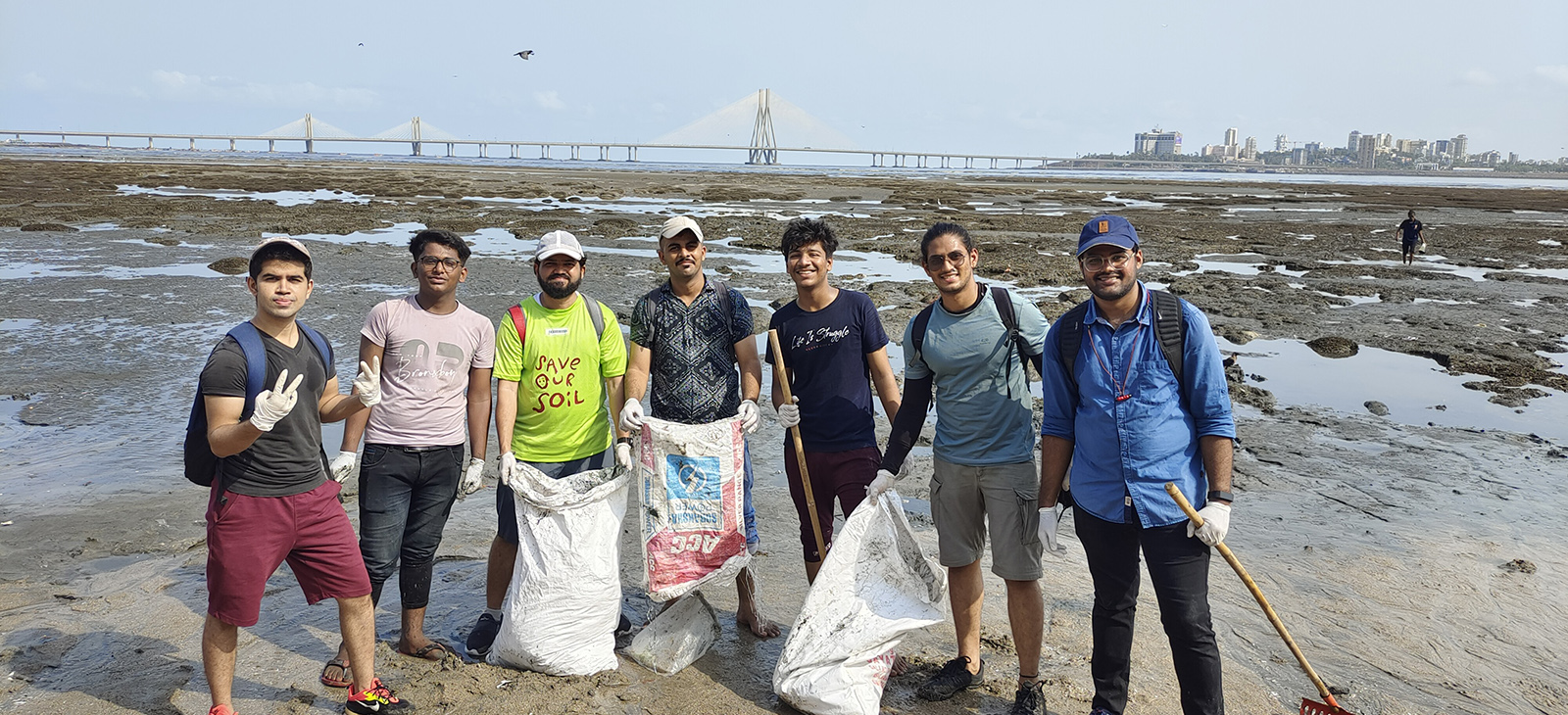
A volunteer beach cleanup program in Mumbai, coordinated by ConnectFor, which is supported by the Rosy Blue Foundation.






